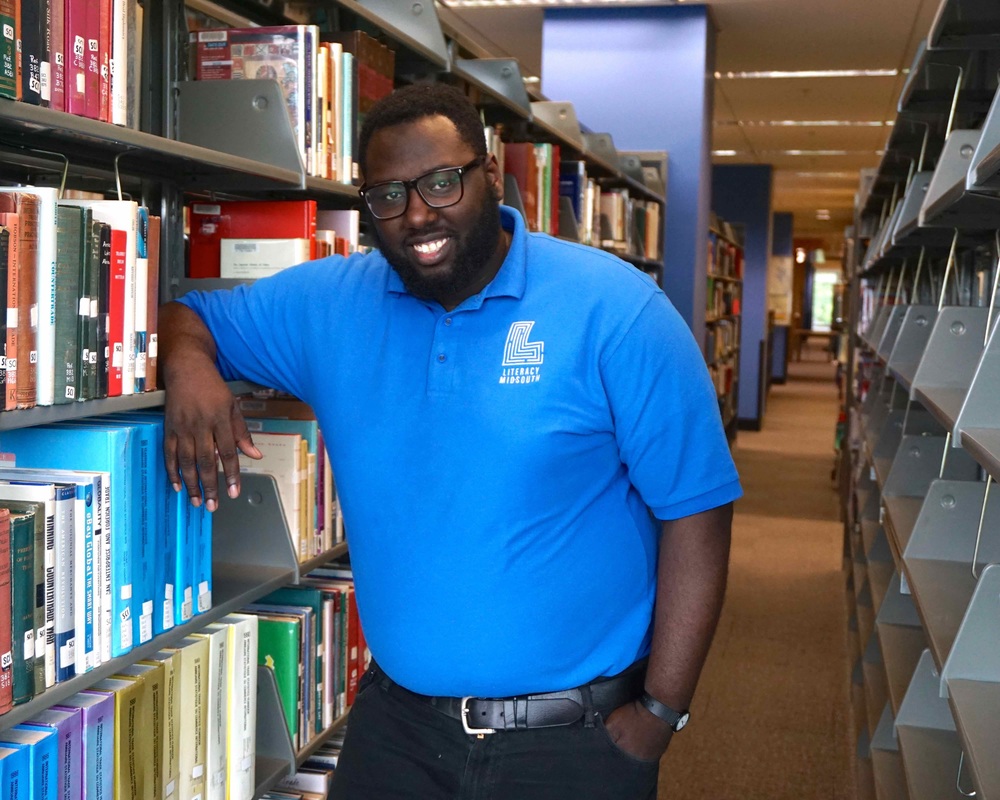“I was 14 years old when I taught my Dad to read. He wanted to pass the test for his Commercial Divers License (CDL) so that he could work for just one company and not try to piece together a living from two or three jobs. He had been pushed through school because he was a good football player; he could run fast and jump high, but he couldn’t read beyond about second grade level. I don’t know this for sure, but I think he probably had dyslexia. I do know that he always felt like the system had failed him. The experience of teaching my own father to read helped me realize how difficult it was for him to be the provider for us with that kind of limitation. The good part is that after six months of tutoring, he did get his CDL and was able to earn more. He had a steady job, and our family got to enjoy comforts we hadn’t before. He was really proud of that.
“I’ve worked as the Adult Learning Coordinator for Literacy Mid-South for a year now, and I get to meet a lot of people and hear their stories of not being able to read. For some, their education stopped because of sick parents or because they had to drop out of school and go to work. Others were passed on from grade to grade because they weren’t trouble-makers; they were good kids or athletes. Some just got so discouraged and far behind that they gave up. There are all kinds of reasons. It’s a huge step for them to come forward. So many people have gone for decades without revealing to anyone that they can’t read. They’ve developed coping strategies to get them through, but now they want to help their children with homework or move up in their jobs, and they realize they have to be able to read. It’s challenging for adults to stick with the tutoring program because many of them have transportation issues, families to tend to, or varying work schedules, but those who are consistent and motivated can make a lot of progress in a short time. It takes about 100 hours of tutoring to move up one grade level. Currently, we have 600 adults enrolled in literacy tutoring, with more on the waiting list. We’re always looking for more tutors.”
“I’ve worked as the Adult Learning Coordinator for Literacy Mid-South for a year now, and I get to meet a lot of people and hear their stories of not being able to read. For some, their education stopped because of sick parents or because they had to drop out of school and go to work. Others were passed on from grade to grade because they weren’t trouble-makers; they were good kids or athletes. Some just got so discouraged and far behind that they gave up. There are all kinds of reasons. It’s a huge step for them to come forward. So many people have gone for decades without revealing to anyone that they can’t read. They’ve developed coping strategies to get them through, but now they want to help their children with homework or move up in their jobs, and they realize they have to be able to read. It’s challenging for adults to stick with the tutoring program because many of them have transportation issues, families to tend to, or varying work schedules, but those who are consistent and motivated can make a lot of progress in a short time. It takes about 100 hours of tutoring to move up one grade level. Currently, we have 600 adults enrolled in literacy tutoring, with more on the waiting list. We’re always looking for more tutors.”
Troy Wiggins, Adult Learning Coordinator for Literacy Mid-South
Website: Literacy Mid-South
Email: [email protected]
Ph. 901-236-3348
Website: Literacy Mid-South
Email: [email protected]
Ph. 901-236-3348

 RSS Feed
RSS Feed